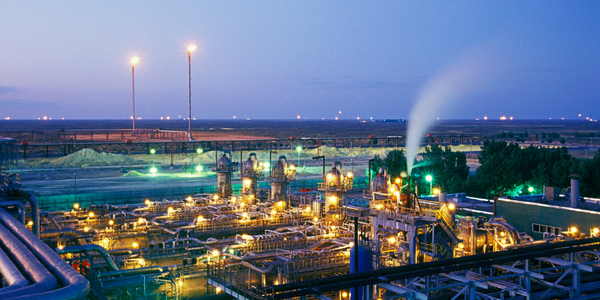Localizing Corporate Systems at The Weir Group
Customer Company Size
Large Corporate
Region
- Europe
- America
Country
- United Kingdom
- Brazil
Product
- Digibee HIP
- SAP
- Ariba
- 42Q MES
- Proteus ERP
Tech Stack
- Integration Platform as a Service (iPaaS)
- Data Encryption
- Real-Time Monitoring
Implementation Scale
- Enterprise-wide Deployment
Impact Metrics
- Productivity Improvements
- Customer Satisfaction
- Digital Expertise
Technology Category
- Platform as a Service (PaaS) - Connectivity Platforms
- Application Infrastructure & Middleware - Data Exchange & Integration
- Application Infrastructure & Middleware - Middleware, SDKs & Libraries
Applicable Industries
- Mining
- Oil & Gas
Applicable Functions
- Business Operation
- Maintenance
- Quality Assurance
Use Cases
- Process Control & Optimization
- Predictive Maintenance
- Remote Asset Management
Services
- System Integration
- Cloud Planning, Design & Implementation Services
- Software Design & Engineering Services
About The Customer
The Weir Group is a British engineering company headquartered in Glasgow, Scotland. The company operates in over 70 countries and employs approximately 15,000 people. The Weir Group is focused on mining, oil and gas and power markets and reported revenues of some $350M in 2019. As one of the world’s leading engineering businesses, The Weir Group works in partnership with its customers to solve their toughest operating challenges safely, efficiently and sustainably. It provides original equipment and aftermarket services to mining, infrastructure and upstream oil and gas markets, supporting the essential resources needed by a growing world.
The Challenge
The Weir Group needed to integrate its corporate systems including payroll, ERP, MES, Ariba and SAP with its local systems in Brazil in a fast, reliable and secure way. The Group had a lack of resources (budget and skillful internal assets) to build and manage multiple integrations in multiple platforms. The Weir Group needed an agile and flexible process to cope with its business needs and make its systems flow in a reliable and secure way.
The Solution
Digibee was able to simplify Weir’s complex systems and build new integrations in a few weeks, encrypting all sensitive data and allowing the Weir Group to track multiple systems in near real-time. The solution involved building and operating three different integration flows: Workday with Proteus ERP, SAP with 42Q MES system, and SAP with Ariba platform. Digibee's robust, secure, scalable, and reliable platform was essential for these critical business processes. The solution also offered 24/7 monitoring that automatically identified any problem in the integration flow and immediately generated an alert.
Operational Impact
Quantitative Benefit

Case Study missing?
Start adding your own!
Register with your work email and create a new case study profile for your business.
Related Case Studies.

Case Study
Taking Oil and Gas Exploration to the Next Level
DownUnder GeoSolutions (DUG) wanted to increase computing performance by 5 to 10 times to improve seismic processing. The solution must build on current architecture software investments without sacrificing existing software and scale computing without scaling IT infrastructure costs.

Case Study
Remote Wellhead Monitoring
Each wellhead was equipped with various sensors and meters that needed to be monitored and controlled from a central HMI, often miles away from the assets in the field. Redundant solar and wind generators were installed at each wellhead to support the electrical needs of the pumpstations, temperature meters, cameras, and cellular modules. In addition to asset management and remote control capabilities, data logging for remote surveillance and alarm notifications was a key demand from the customer. Terra Ferma’s solution needed to be power efficient, reliable, and capable of supporting high-bandwidth data-feeds. They needed a multi-link cellular connection to a central server that sustained reliable and redundant monitoring and control of flow meters, temperature sensors, power supply, and event-logging; including video and image files. This open-standard network needed to interface with the existing SCADA and proprietary network management software.

Case Study
Refinery Saves Over $700,000 with Smart Wireless
One of the largest petroleum refineries in the world is equipped to refine various types of crude oil and manufacture various grades of fuel from motor gasoline to Aviation Turbine Fuel. Due to wear and tear, eight hydrogen valves in each refinery were leaking, and each cost $1800 per ton of hydrogen vented. The plant also had leakage on nearly 30 flare control hydrocarbon valves. The refinery wanted a continuous, online monitoring system that could catch leaks early, minimize hydrogen and hydrocarbon production losses, and improve safety for maintenance.





